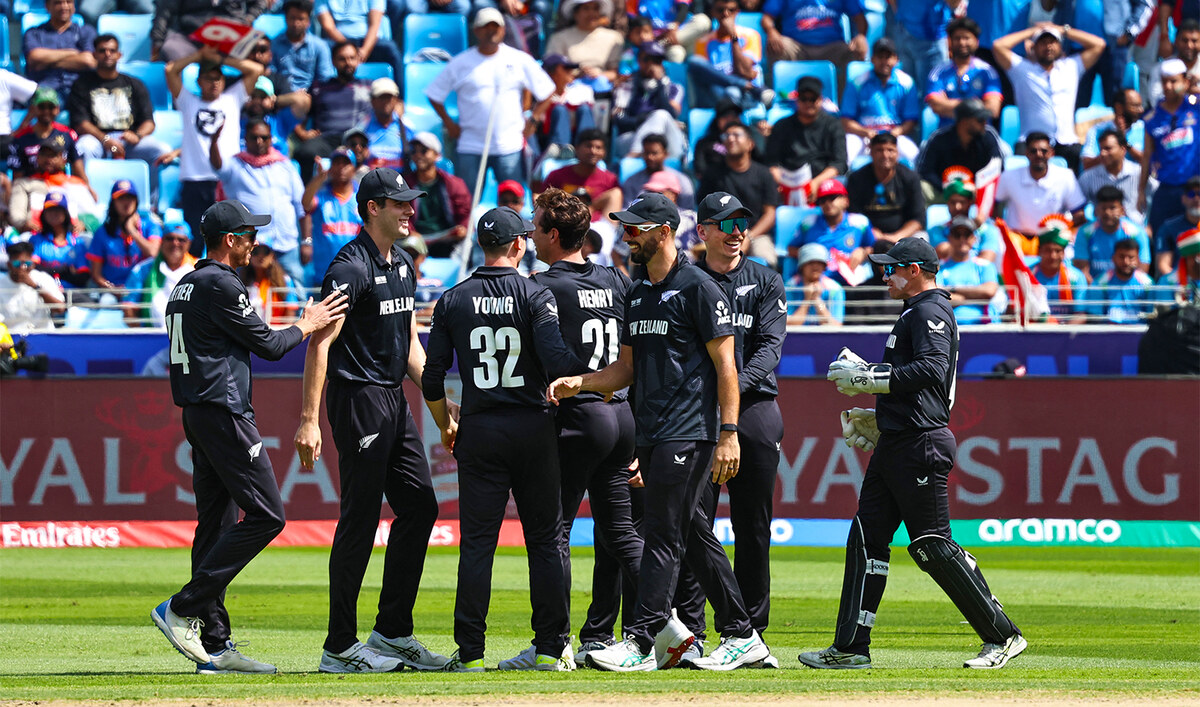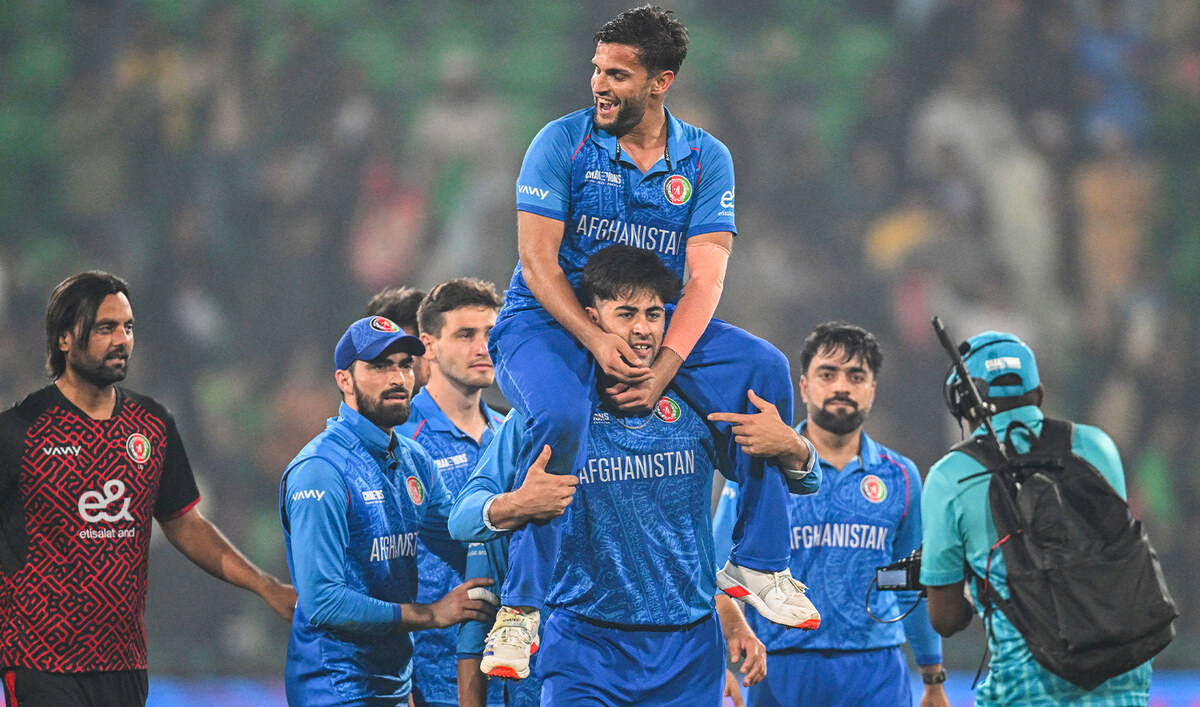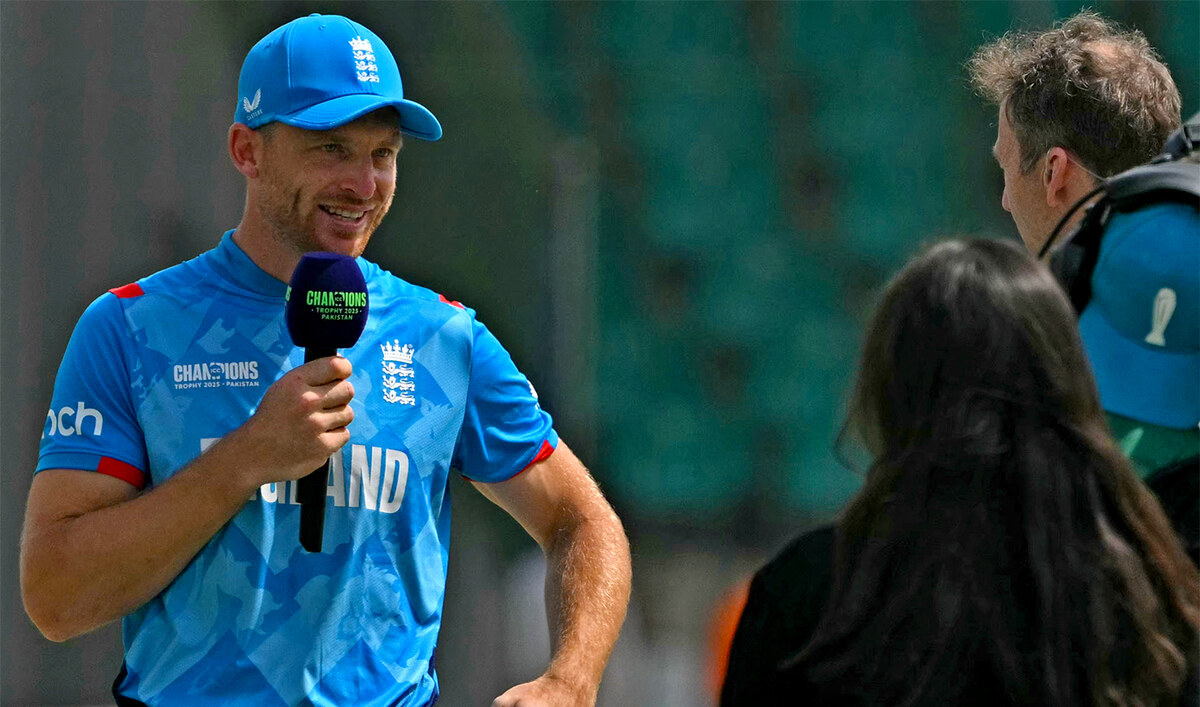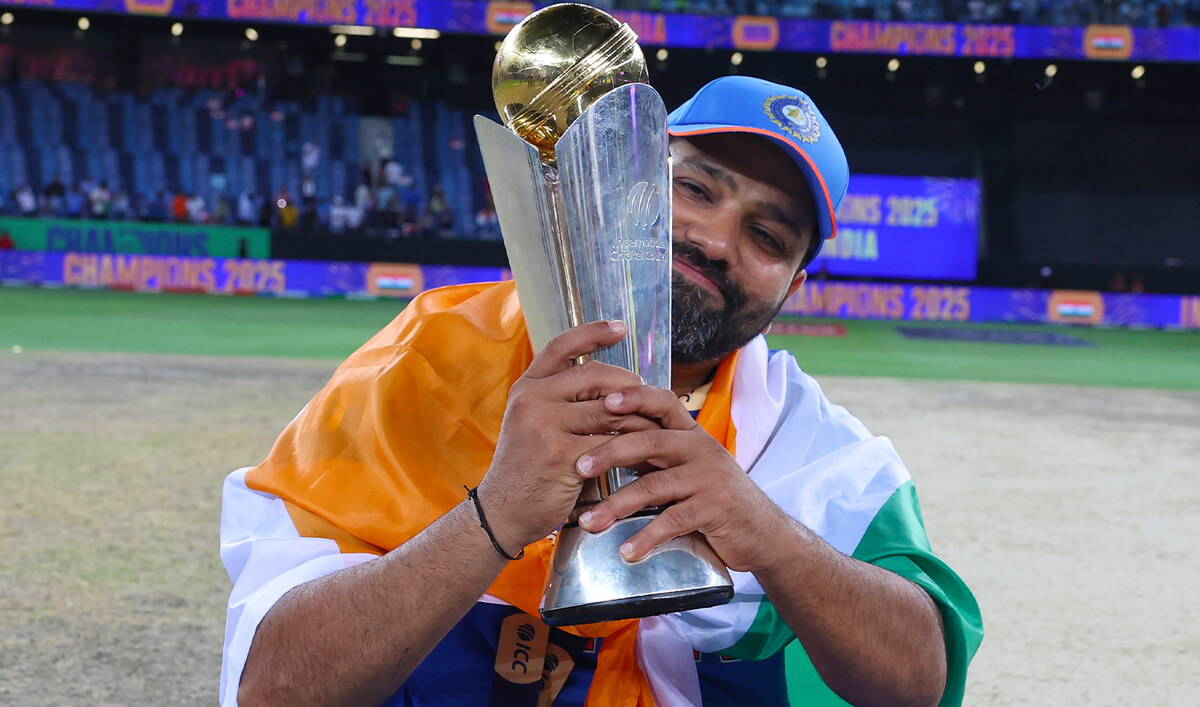LAHORE: Javed Riaz first took up farming in 1979 to cash in on Pakistan’s cotton boom-- a crop often referred to back then as ‘white gold.’
But today, the father of three has reduced his landholdings by half and the long rows of soft white flowers at his farms have been replaced with maize and sugarcane.
“If a farmer is still planting cotton in Pakistan, he is very brave,” Riaz told Arab News, from his home in Toba Tek Singh in eastern Punjab province.
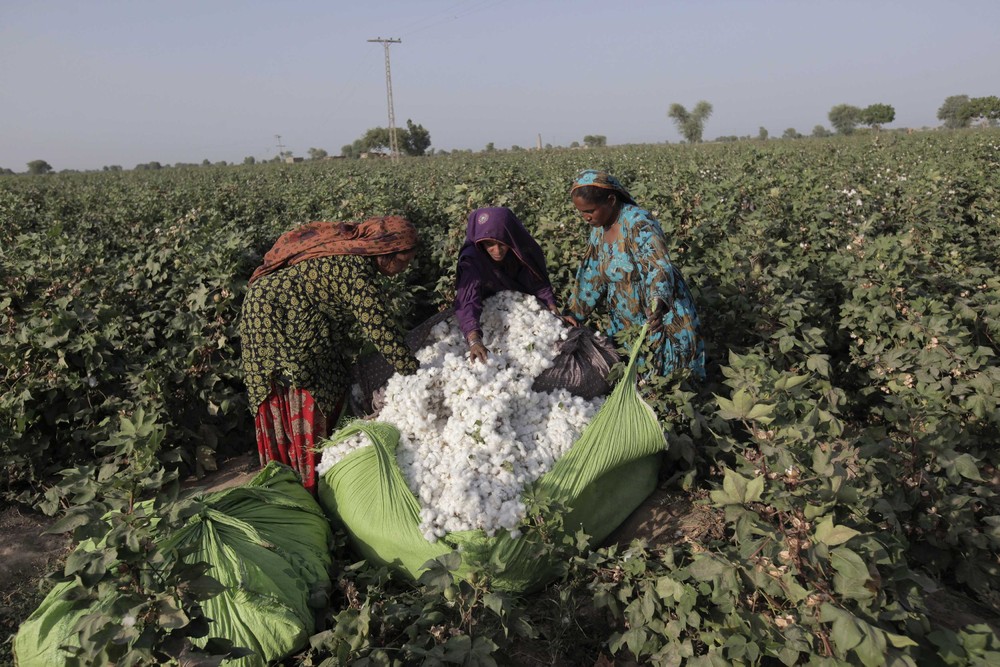
Women cotton pickers unload cotton blooms plucked from plants to make a bundle in a field in Meeran Pur village, north of Karachi September 25, 2014. (Reuters)
Of the four key cash crops in Pakistan – wheat, rice, cotton, and sugarcane — cotton has historically played the most dominant role. Planted largely in the southern belt of Punjab, raw cotton and cotton-related products make up 58 percent of Pakistan’s total exports, larger than any other product in the country. In 2012, Pakistan was the fourth biggest cotton producer in the world.
But in the last decade, Pakistani farmers have turned away from the crop by the hoardes and cotton cultivation since 2012 has been on a steady downward spiral. In 2019, cotton output fell by 23 percent compared to the previous year, according to the Pakistan Cotton Ginners Association.

Tulsi, a cotton picker sorts out cotton blooms while sitting on a rope bed in the premises of her home in Meeran Pur village, north of Karachi November 23, 2014.
One reason farmers are cutting back on cotton in the last few years is the unaffordable cost of production and pesticide. But during the same period, there has been a glut of sugarcane in the market. The uneven development, officials admit, is due to a consistent state policy to promote one crop over the other.
“No government has ever been interested in cotton,” said a government agriculture researcher, requesting not to be named.
“Every political party in the last few years has had politicians who owned sugar mills. So the state policy has been to encourage farmers to plant sugarcane by offering subsidies,” he said.

Laali, 11, holds a bloom of cotton plucked from a plant while working with her family in a field in Meeran Pur village, north of Karachi September 25, 2014. (Reuters)
Family of former Prime Minister Nawaz Sharif, who reigned over the country for three non-consecutive terms, own two sugar factories in the agricultural heartland of Pakistan’s Punjab province.
And presently, the man who steers much of the government’s agriculture policy and chair of the agricultural committee at the center is Jahangir Khan Tareen says a government official, who is also a member of the committee. Tareen is the director of the JDW Group, which according to its website is “Pakistan’s largest” sugar milling operation.
To save cotton, explained the official who asked not to be named, the agricultural committee headed by Tareen will have to develop a comprehensive policy regarding farming. That, he adds, is not happening at the moment.

A man makes notes while others carry a bundle of cotton blooms attached to a weighing scale in a field in Meeran Pur village, north of Karachi September 25, 2014. (Reuters)
The committee meets thrice a month in the capital. Yet, no minutes of the meeting are recorded. No policy drafts are prepared.
“There is no direction as yet,” the official explained.
“The federal minister of food security and research, who should be chairing this committee is not interested. The previous minister, Mehboob Sultan, barely came to the meetings. And the new one has nothing to add.”
In July last year, Mehboob Sultan, then minister of food security and research, told reporters that he had personally requested Tareen to assist the government in planning an agricultural policy. “He [Tareen] is doing this voluntarily,” Sultan had said, “No one in this country knows about the agriculture sector better than him.”
However, the business magnate and former politician was disqualified by Pakistan’s Supreme Court from holding public office in Dec. 2017. In November, Sultan was also replaced with Khusro Bakhtiar.

A man carries a bundle of cotton blooms on his shoulder, collected by women (unseen) in a field in Meeran Pur village, north of Karachi September 25, 2014. (Reuters)
Tareen and Bakhtiar did not reply to Arab News’s request for comments.
“If the trend continues, we expect [cotton] cultivation to further decline by 40 percent this year,” Muhammad Javed Sohail, chairman of the Association, told Arab News.
Agriculture, which employs 43 percent of Pakistan’s population of 210 million and contributes 18.5 percent to the GDP, could be staring at a bleak future. According to the ministry of finance’s Economic Survey of 2018-19, over the last decade, the performance of the agriculture sector “has fallen short of desirable level, mainly because of stagnant productivity of important crops.”
The lopsided attention to sugar can also be judged by the Prime Minister’s Agriculture Emergency Program launched in June 2019, which has set aside a total of Rs. 309 billion for the agriculture sector. Of this, Rs.19.3 billion will go toward increasing the production of wheat, Rs.11.4 billion for rice and almost Rs. 4 billion for sugarcane. Cotton is not on the list.
For cotton grower Javed Riaz, this is astounding.
“I don’t understand,” he said. “How can they forget cotton?”
On February 25, the prime minister had a special sit-down with ministers and bureaucrats to hammer out a policy for cotton, Dr. Hashim Popalzai, the secretary at the ministry of food security and research told Arab News. “One thing we plan to do immediately is reduce the price of pesticides used to kill the insect, pink bollworm, which damages cotton every year,” he said.
“We also plan to strengthen our cotton-related research facilities with China’s help,” he added. However, no separate budget has been earmarked for the cotton sector as yet.
Researchers say that blindly promoting sugarcane and rice in Pakistan comes with its own set of problems, as both the water-intensive crops deplete the country’s precious groundwater.
And by snubbing cotton, Pakistan’s government could be headed for a deeper economic crisis.
In December last year, the chief of Pakistan’s central bank said the GDP growth for 2019 was expected to be 3.5 percent and would be revised due to the lower than expected performance of the agriculture sector, “primarily on account of adverse supply-side shocks to cotton production.”
For Dr. Shafiq Ahmed, country director for Better Cotton Initiative, a global not-for-profit organization, the future of cotton is just as much in doubt as the future of farming in Pakistan.
Growers, he insists, are turning their backs on agriculture altogether, and farmers are selling off their smallholdings.
“These people are no longer making enough money, so they are selling their lands to housing societies in Punjab,” he told Arab News. Neither is the younger generation interested in the laborious working hours of farming, he added.
“If you ask me, I fear that small farmers will not be able to survive. Tomorrow they might be working in the same farms they once owned.”

















